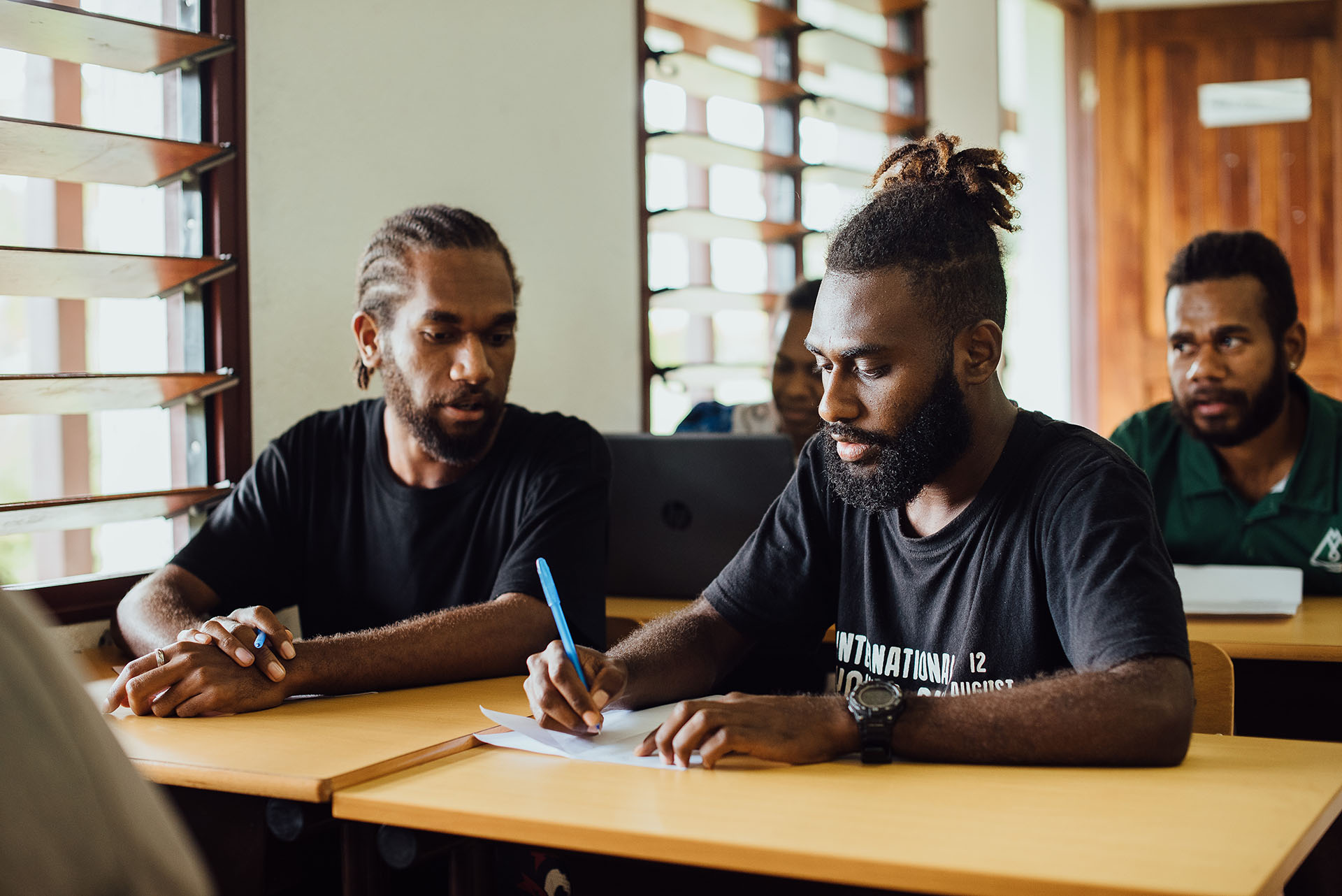In Vanuatu, IT capacity building will enable the National University of Vanuatu (UNV) to become a digitally resilient institution of higher education. The project includes human resource and infrastructure enrichment including IT equipment as well as the development of a connectivity network linking UNV’s main campus to its other campuses (ITV, SOE, VAC). The project starts in November 2021 for a duration of two years.
Vanuatu is a country divided into many islands with populations speaking different vernacular languages as well as French, or English and Bichelamar which are the three official languages. Primary and secondary education is mostly provided separately in French or English and the only university (University of South Pacific) that existed before the creation of the (bilingual) UNV in 2019 offers its courses only in English, which reinforces the disparity in access to higher education. Vanuatu is also prey to numerous natural disasters (cyclones, volcanic eruptions, earthquakes, etc.) as well as tropical diseases (dengue, etc.) in the context of a deficient public health system that hinders its development. These conditions are factors of vulnerability as the country faces the current pandemic of COVID-19 which has led to the closure of its borders, forcing in particular to reconsider the modes of teaching at the UNV.
ACTION
The funding for this project aims at strengthening the digital infrastructure of the VNU through the acquisition of computer equipment (hardware and software), human capacity building and the creation of a connectivity network within the main VNU campus linking it with its peripheral campuses.
Component 1 of the project aims at increasing the computer equipment capacity for all students on the main UNV campus (installation of 2 computer labs) as well as in 3 other decentralized campuses.
Component 2 aims to ensure secure connectivity for everyone, everywhere.
Component 3 aims to achieve a digital transition in the service of Higher Education by
• Developing the existing Moodle teaching platform and its use by teachers and students.
• Setting up a partnership with a computer supplier to offer personal equipment at preferential rates
• Developing a new degree in computer science with the assistance of a specialized expert
Component 4 aims to provide all UNV students and faculty with privileged access to a number of digital library and language resources.
Finally, the last component aims to ensure the backup and availability of data by setting up a Data Centre.
Under each component, the project aims to help strengthen gender equity as part of the UNV Inclusion Action Plan.

ORGANIZATION
Established by Act No. 34 of 2019 published on 24 January 2020, the National University of Vanuatu (UNV) is the country’s first national university. Its mission is to advance higher education and lifelong learning through academic and professional excellence through training, teaching and learning in the two official languages of English and French, as well as through research and international cooperation. UNV has two faculties: the Faculty of Humanities with five schools and the Faculty of Science and Technology, which also has five schools. It aims at integrating the leading national technical and vocational training institutions. Today, this issue is crucial for the rapid growth and development of this highest national teaching and learning institution in the country.
PARTNERS
The main partners will be the students and teachers, who will also benefit from the project.
UNV will also work closely with the Government’s IT department to deliver a harmonized digital development agenda for Vanuatu, as well as with local private digital stakeholders.
RESULTS / IMPACTS
Each of the project components should lead to a concrete and verifiable result according to the simple indicators proposed.
At the qualitative level, this project will act as an accelerator in UNV’s digital strategy. The University will position itself as a key player among regional universities in the Pacific region. By greatly increasing its digital capabilities, the university will become more attractive to students in the region. The accelerated development of the datacenter, the documentation centre and the language centre will provide students with access to resources that are essential to their learning.
